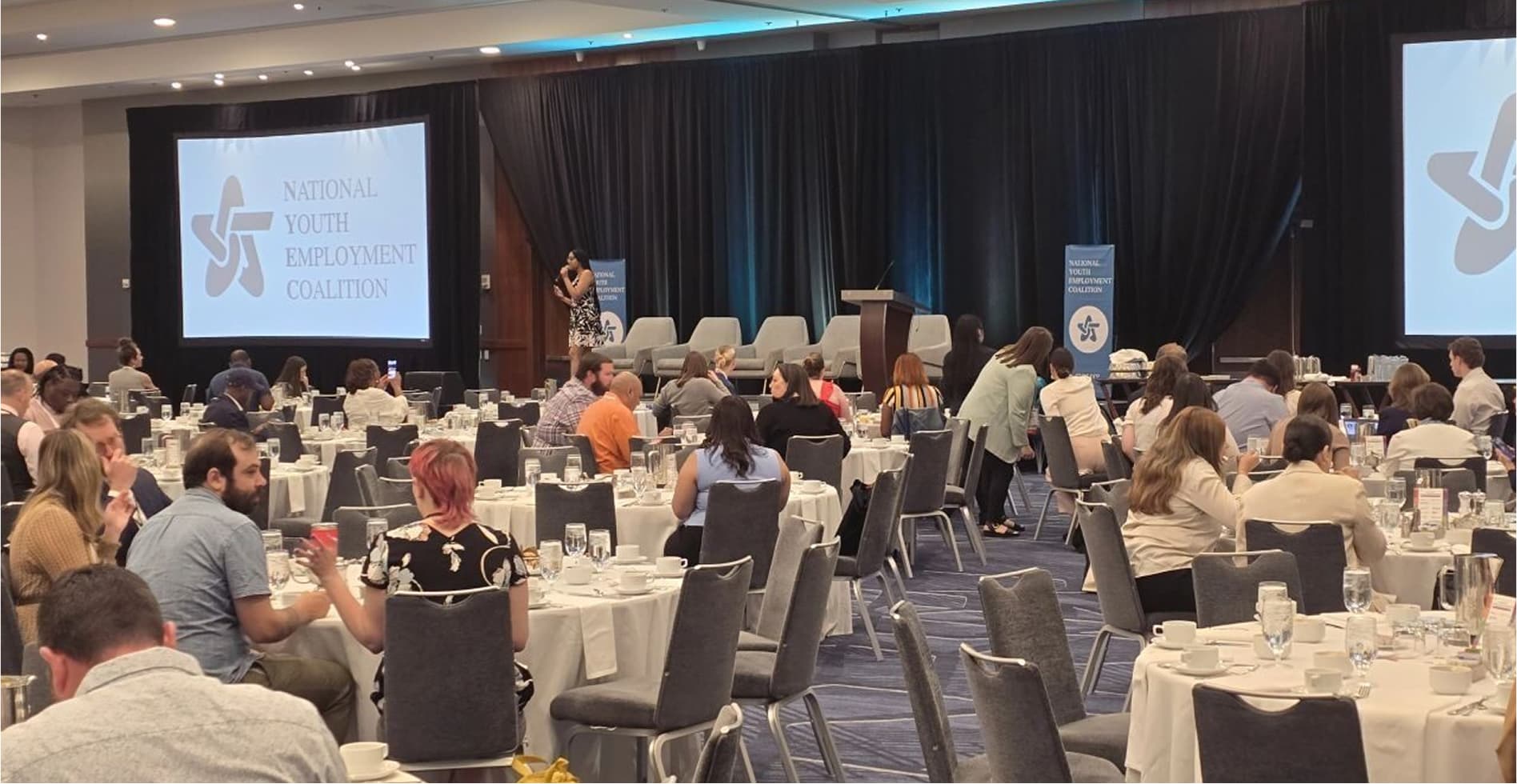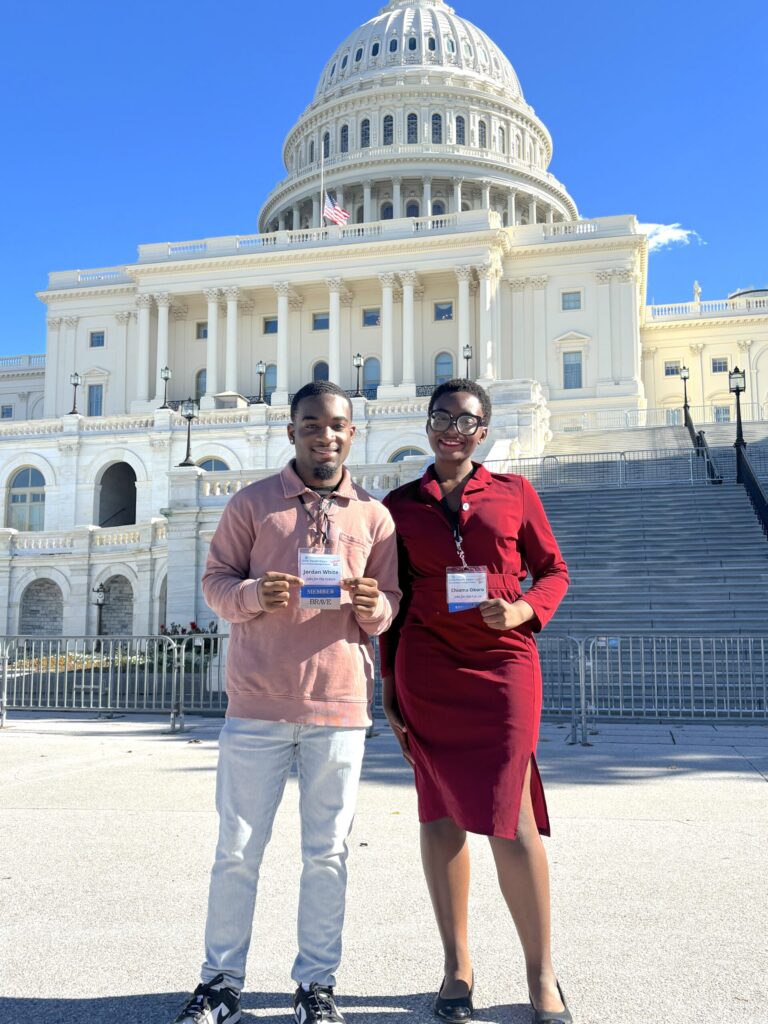I recently attended two cherished spring events for those of us working in youth workforce development – the National Youth Employment Coalition (NYEC) annual convening and the Aspen Institute Opportunity Youth Forum Spring Convening.Across these two convenings, thousands came together to discuss promising practices, innovations, challenges, research, and more. Everyone in attendance was committed to the same goal: helping youth and young adults have more opportunities to build quality jobs that lead to economic mobility and thriving lives.Read on to see the six big themes of these two important convenings:
- “Listen to Them.”This is a direct quote from Christine Forgione of the Project Longevity at the Justice Education Center in Connecticut and I heard it in many forms throughout the conference.As practitioners, policymakers, researchers, and leaders, we need to listen to young people:what they need, the real barriers and challenges they are facing, and how to help.Make sure your organization has the structures, processes, and commitment in place to ensure you are centering these voices in your work every day.
- Expose and Explore,But We’ve Got to Do More.There were some great examples of organizations doing work to help youth and young adults gain exposure to careers and explore different industries. For example, I appreciated learning more about how the Boys and Girls Club of America is invested in using the time they have with young people after school to jump start this career exposure and exploration process, and how the Montana Work-Based Learning Collaborative is supporting young Montanans in learning about exciting local career pathways.That said, I also walked away from the conference thinking there is room to do a lot more.Let’s push ourselves to go beyond industry classroom visits for a one-time presentation and really think about how we can bring people into the world of work. In partnership with employers, through creative approaches to project-based Work-Based-Learning (WBL), to scaling Summer Jobs Programs, to using Virtual Reality (VR) and other tools, there is room to keep raising the bar on how we help young people learn about their career options.
- From High School to Work, Time to Really Focus on Making This Work.As stakeholders doing work in this space know, there are many pathways high school graduates can take and it is not one-size-fits-all.I was especially excited to hear about some communities and organizations taking a renewed focus on young adults that are planning to go straight into the workforce after high school (which doesn’t mean not college ever, just “not college right now.”).There is an opportunity to invest in programs, approaches, and strategies that are focused on this population of next-Gen workers and work to ensure that the jobs they enter post-high school are quality jobs.At NYEC, I was especially excited to hear about great work happening at KentuckianaWorks where they are going all in on helping graduating seniors across the state that want to immediately enter the workforce get connected to high-quality, full-time jobs through their After the Tassel initiative.
- Bring Financial Literacy and Good Financial Decision-Making into the Mix. NYEC and Aspen Institute OYF are primarily employment-focused convenings, but it was interesting to hear several presenters talk about how they are integrating in financial literacy and decision-making skills into work with young people around education and career choices.Recent research shows that both young people and their families are worried about the cost of post-secondary plans and the choices they make about education and career are deeply connected to their financial lives.The Cities for Financial Empowerment Summer Jobs Connect program was highlighted at NYEC and at Aspen Institute OYF, and attendees had the chance to hear about how YouthBuild is integrating critical financial capability work directly into employment and career-focused programs for young people.
- This Work Demands We Commit to Solutions, Even When It Is Hard.It was inspiring to hear from local community organizations that despite resource constraints, they were committed to solving Herculean challenges. For example, at Aspen Institute OYF, I was impressed with the way the Education and Leadership Foundation tackled a trifecta of challenges – working in a rural community, working with young people who may lack status and work authorization, and working in a challenging dynamic federal, state, and local policy context – to nonetheless forge a way forward and help hundreds of young people explore careers, build skills, and start their journey towards a thriving future.Young people in America deserve nothing less from us.
- It’s About People and Trust.Throughout the convening, someone invariably brought up how important interpersonal connection and building trust are, especially for Opportunity Youth who often face disappointment and frustration with the very systems supposed to help them learn and prepare for economic self-sufficiency.While this theme is not a new one, it is an important one to lift up and remember as we design the programs, tools, and policies that shape the work we do with young people.As Erica Soares, Program Director at Waterbury PAL said – who herself was served by a youth employment program and the NYEC Youth Advocate award this year – we have to be ready to pick up the phone every day, respond to their needs, be there for them and show them that they can count on us.
These ideas inform the work we are doing at the ASA Center for Career Navigation and we are curious to hear how these ideas might shape the work you are doing.Explore the opportunityto become a part of our Career Navigation Stakeholder Network, which brings together stakeholders invested in supporting 16-24 year olds in having the information, guidance, and opportunities they need to make education and career choices that lead to quality jobs. You can learn more about this network here.






